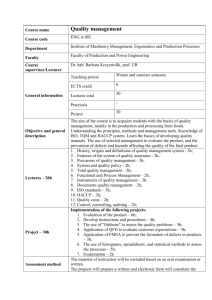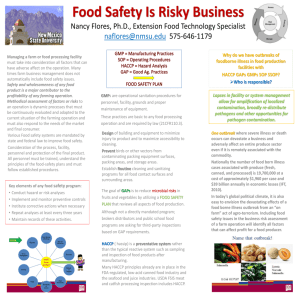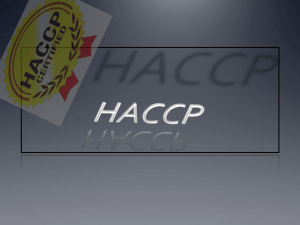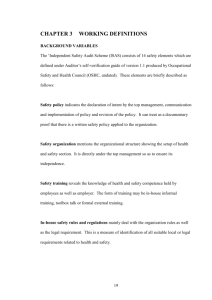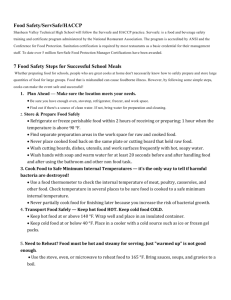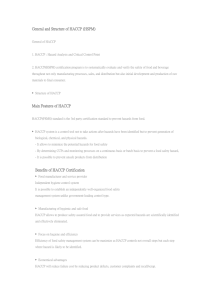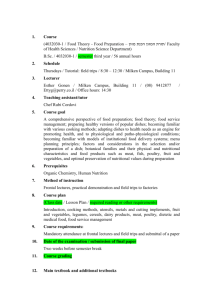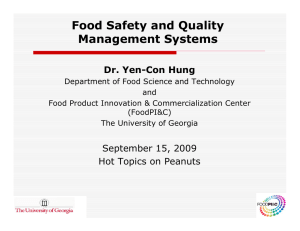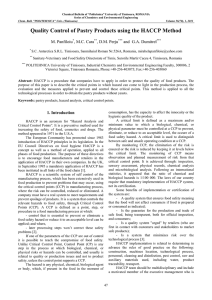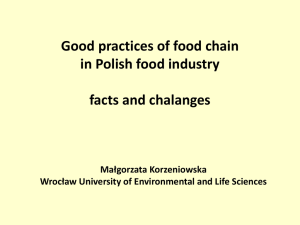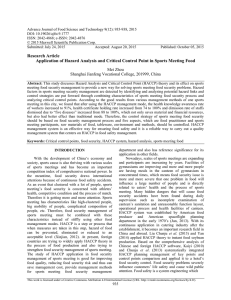Lumuno - Importance of Standards Presentation
advertisement
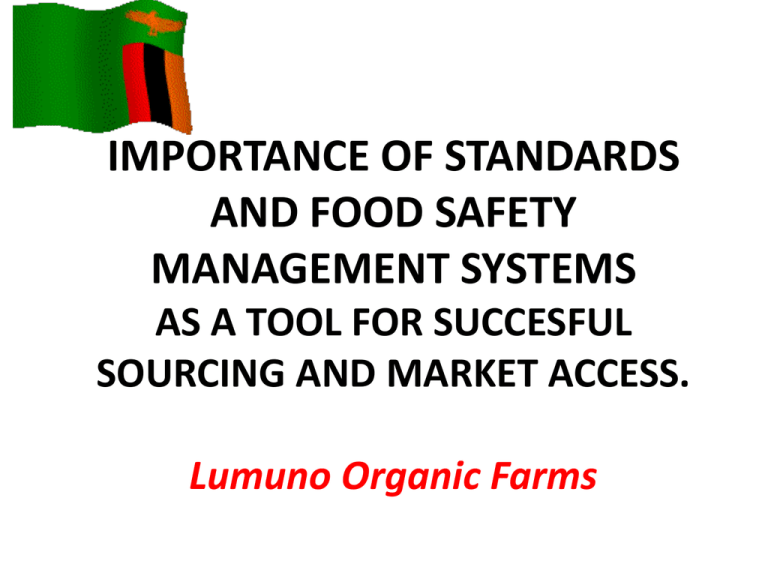
IMPORTANCE OF STANDARDS AND FOOD SAFETY MANAGEMENT SYSTEMS AS A TOOL FOR SUCCESFUL SOURCING AND MARKET ACCESS. Lumuno Organic Farms Introduction • On the global market, trade has been driven by international and regional agreements between nations and regional bodies. • Development and boosting of national economies mainly depends on trade and therefore adherence to the requirements of the international agreements that exist should be ensured. • To achieve this, governments need to have on the domestic scene structures that will deliver both quality and safe products for trade. • This is of great importance in the production and trade as it concerns both human and animal health. Introduction • Food safety management system involves various stakeholders such as government agencies, public and private sector producers and processors as well as consumers and or end users. • In Zambia line ministries regulate and make laws, whilst conformity assessment bodies (CABs) deal with certification, inspection and laboratory testing. • Currently this is done by the Zambia Bureau of Standards (ZABS), Food and Drug Department and academic and research institutions, and these are linked to accreditation bodies as active members. Introduction • The quest to maximize profits versus delivery of quality conforming products has been a great concern as some manufacturers, both from public and private sectors would always want to cut costs to increase profits. • Conformity Assessment Bodies ensure that food safety regulations are adhered to and the consumers are protected from hazardous food products; provision of checks and balances. • Moreover entrepreneurs or manufactures need certification by national bodies that are accredited to other international bodies to create confidence to end users. Laboratory testing • This involves the determination of the characteristics of a product, and should be mandatorily done in an accredited institutional laboratory. • The product must conform to agreed parameters and should be found fit for human consumption. • As Lumuno, we take our products for testing to ensure safe products on the market. • This has helped us to maintain our clientele. Standards • These are a set of rules that govern the way products are manufactured and the quality of the same, also the contents /ingredients of the products and quantity levels. • It is very important for a manufacturing or processing company to adhere to regulations and standards in their production processes to ensure entry into diverse market. • Adhering to food safety requirements also provides confidence to buyers. Our Experience • Lumuno appreciates the need to stick to standards in their production and processing systems. • Standards have helped to ensure that our product processing is in conformity with the recipes and no differences in the production batches. • It gives us confidence to enter new markets, hence the growth of our enterprise. • We are currently HACCP compliant, and have undergone KAIZEN (change for better) training. Has HACCP compliance and ISO 90012008 helped in local sourcing ? • Limitations in some product standards on the local market have resulted in producers and or processors taking advantage of the consumer through the introduction of uncertified products. • Manufacturers introduce products on to the market without ensuring that they are tested by accredited institutions to ensure safety, as long as they sell. • Some of these products are toxic, while others contain traces of aflatoxins and the consumers are the ones who bear the consequences of eating unsafe foods. • In adequate funding to CABs and other inspectorate department such as councils and health department is yet another drawback to production of consumer safe foods. Has HACCP compliance and ISO 90012008 helped in local sourcing ? • Due to lack of standards and food safety guidelines the dealers (middle players) in these products such as supermarkets, small groceries and restaurants are ignorant of the requirements, therefore continue to stock the products on their shelves. • What this means is that whether you follow standards or food safety guidelines or not you will still be able to supply your products in the supermarkets. • It is a different scenario in developed countries where food safety is taken very seriously. Has HACCP compliance and ISO 90012008 helped in local sourcing ? • HACCP (Hazard critical control points) is a system which identifies, evaluates and controls hazards which are significant for food safety and when appropriately applied HACCP has been noted to produce safer food. • Non conformity to standards and food safety guidelines has seen an increase of counterfeit products on the market. • Products meant to be discarded will sometimes appear on the shelves in the COMESA region . Has HACCP compliance and ISO 90012008 helped in local sourcing ? • In adequate facilities at the international borders and unchecked border areas are entry points for fake products. • The increases in counterfeit products has reduced Government income generation through duty/taxes and reduced local products sales because the counterfeit products are usually cheaper and don’t adhere to customs guidelines. • Due to this the local producers competing with the counterfeit products have inadequate funds to employ more people Has HACCP compliance and ISO 90012008 helped in local sourcing ? • ILLICIT TRADE IS A DANGER TO OUR ECONOMIES AND NEEDS TO BE DISCOURAGED. END! THANK YOU! Khama Mbewe Lumuno Organic Farms
